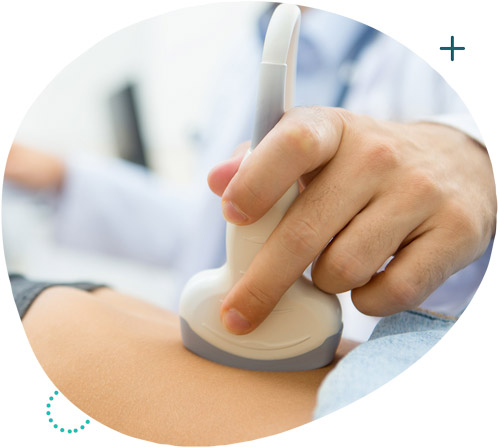This website uses cookies so that we can provide you with the best user experience possible. Cookie information is stored in your browser and performs functions such as recognising you when you return to our website and helping our team to understand which sections of the website you find most interesting and useful.
Pregnancy
Pregnancy
Prenatal Testing
Monitoring a normal pregnancy at the gynecologist is done on average with a visit once a month.
We now universally consider that most pregnancies come to an end, at 40 weeks of amenorrhoea, (and we will talk about weeks of amenorrhoea from now on) that is 280 days from the first day of the mother’s last period.
The 40 weeks of amenorrhea correspond to 38 weeks of pregnancy, i.e. 91/2 months of pregnancy.

The basic examinations of a normal singleton (1 fetus) pregnancy are as follows:
- With the first visits to the gynecologist, the Due Date (EDD) will be determined, based on the last period and on the basis of the ultrasound check.
The first instructions and advice will be given and the first laboratory tests will be done, some of which will be repeated at regular intervals. (Ideally the first visit should take place three to six months before the decision to have children). At the beginning of pregnancy or even before conception there is the possibility, if the parents wish, of detecting genetic diseases such as cystic fibrosis (1/25 chance that a parent is a carrier of a mutation) and spinal muscular atrophy (1/ 10000 births) or other diseases based on the history.
- Then, between 11 and 14 weeks, the famous nuchal translucency and the combined 1st trimester test are performed, with which we have a first assessment of the risk of Down syndrome.
- Around 15-16 weeks we can now confidently see the gender of the fetus by ultrasound.
- This is followed by the ultrasound of the second trimester, better known as level b. It takes place around 21-22 weeks and during it a more detailed check of the anatomy of the fetus is done.
- Between 24 and 28 weeks, the sugar curve is done, a test with which we diagnose gestational diabetes (sugar). After 26 weeks, it is recommended to give the pertussis vaccine to pregnant women, which is completely safe and protects the baby with antibodies passed on from the mother, until the first months of life. Influenza vaccine is recommended for pregnant women at any stage of pregnancy. It is absolutely safe.
- Around 32-33 weeks, a more detailed ultrasound check and doppler is done.
- From 34 weeks onwards, the risks due to prematurity are significantly reduced, while after 37 weeks, in case of delivery, the baby is no longer considered premature and can be born without fear.
- From 36 weeks onwards, the well-being of the fetus is checked with doppler and cardiotocogram.
- If conditions allow, the pregnancy can be extended up to 41 weeks, that is 287 days from the first day of the mother’s last period. From then on, for safety reasons, the guidelines recommend delivery either by induction of labor or by caesarean section.










